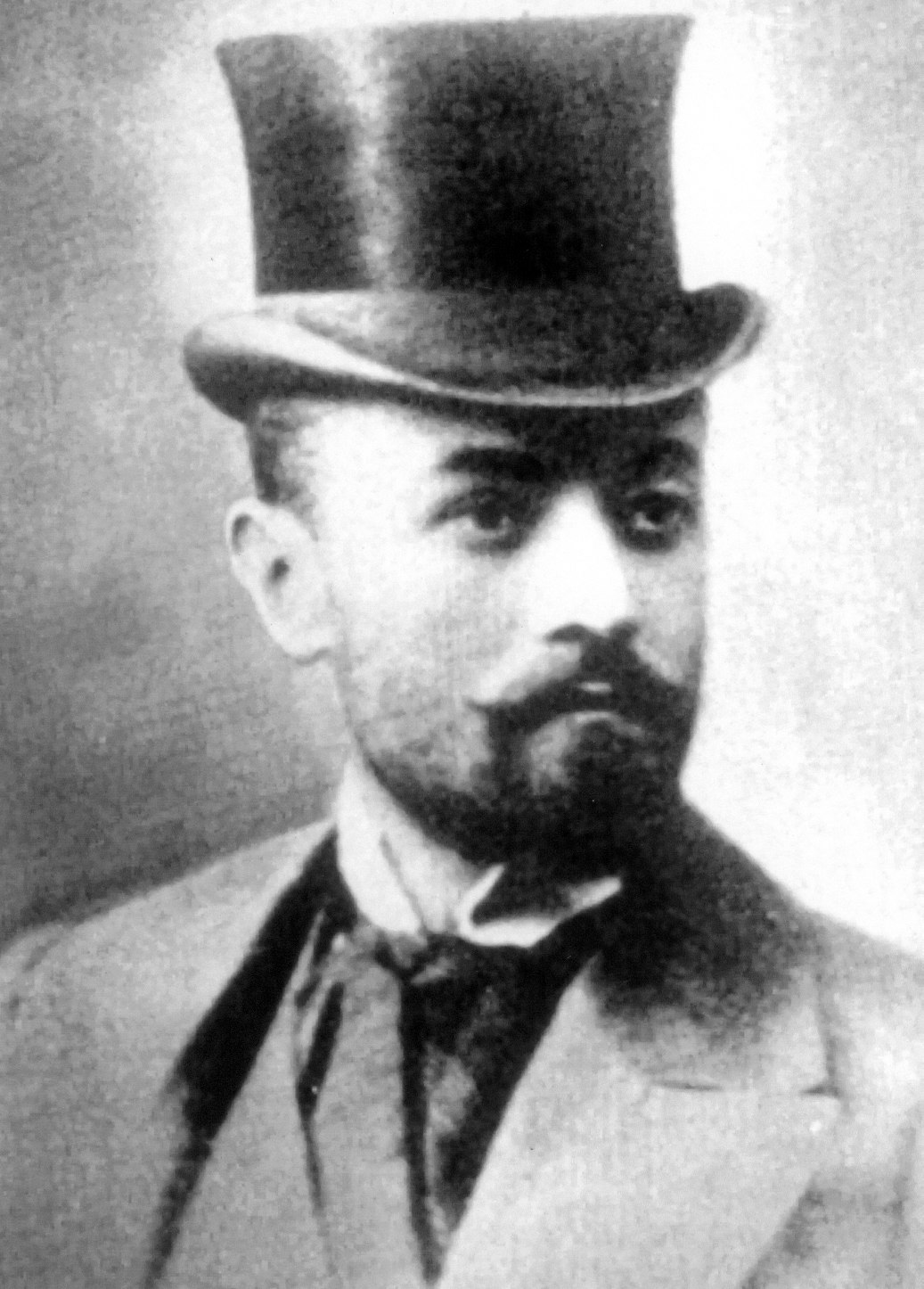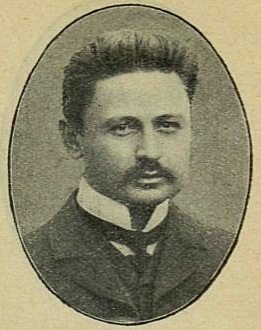|
List Of People Associated With The Democratic Republic Of Georgia
This is an incomplete alphabetical list of the Georgian people active in the short-lived Democratic Republic of Georgia (DRG), 1918-1921. A * Aslan-Beg Abashidze, general * Shalva Abdushelishvili, Member of Parliament from the Social Democratic Party * Kote Abkhazi, general * Stepane Akhmeteli, general * Iason Akhvlediani, general * Shalva Aleksi-Meskhishvili * Ambrosi, Catholicos Patriarch of All Georgia * Alexander Andronikashvili, general * Spiridon Andronikashvili, general * Giorgi Arjevanidze, general * David Artmeladze, general * Razhden Arsenidze, Social Democrat, Minister of Justice * Sosipatre Asatiani, Social Democrat, Chairman of Georgian Legation in Paris * Zurab Avalishvili, historian, diplomatist B * Zakaria Bakradze, general * Andria Benashvili, general C * Alexandre Chkheidze, colonel, later Major General in the Polish service * Nikolay Chkheidze, former President of the Transcaucasian Sejm, President of the Georgian delegation for the Peace co ... [...More Info...] [...Related Items...] OR: [Wikipedia] [Google] [Baidu] |
Georgia (country)
Georgia (, ; ) is a transcontinental country at the intersection of Eastern Europe and Western Asia. It is part of the Caucasus region, bounded by the Black Sea to the west, by Russia to the north and northeast, by Turkey to the southwest, by Armenia to the south, and by Azerbaijan to the southeast. The country covers an area of , and has a population of 3.7 million people. Tbilisi is its capital as well as its largest city, home to roughly a third of the Georgian population. During the classical era, several independent kingdoms became established in what is now Georgia, such as Colchis and Iberia. In the early 4th century, ethnic Georgians officially adopted Christianity, which contributed to the spiritual and political unification of the early Georgian states. In the Middle Ages, the unified Kingdom of Georgia emerged and reached its Golden Age during the reign of King David IV and Queen Tamar in the 12th and early 13th centuries. Thereafter, the kingdom decl ... [...More Info...] [...Related Items...] OR: [Wikipedia] [Google] [Baidu] |
Parmen Chichinadze
Parmen Chichinadze ( ka, პარმენ ჭიჭინაძე; 13 November 1881 – 30 September 1921) was a Georgian Social-Democratic politician and the Minister of War of the Democratic Republic of Georgia from November 1920 to February 1921. Born in the Georgian village of Godogani in the Kutais Governorate of the Russian Empire, Chichinadze was trained as a physician. He became involved in Marxist revolutionary activities and, as a member of the Menshevik faction, took part in the Russian Revolution of 1905. Chichinadze was persecuted by the Imperial government and exiled from Georgia from 1911 to 1915. During the Russian Revolution of 1917, Chichinadze was active in Rostov-on-Don, which he left for Georgia after the Bolshevik coup in October 1917. He joined the Menshevik-dominated government of now-independent Georgia and was appointed the country's Minister of War in November 1920. He tenure was terminated by the Red Army invasion of Georgia, in February 1921, wh ... [...More Info...] [...Related Items...] OR: [Wikipedia] [Google] [Baidu] |
Artem Jijikhia
Artem Jijikhia (Dzhidzhikhia; ka, არტემ ჯიჯიხია; russian: Артемий Мурзаканович Джиджихия) (January 2, 1874 – December 31, 1938) was a Georgian military officer who served in the armies of the Russian Empire and Democratic Republic of Georgia. He was executed during Joseph Stalin’s Great Purge. Jijikhia attended the Tiflis Theological Seminary, but joined the Imperial Russian military in 1893. He graduated from the Tiflis Infantry Junker School in 1897 and received a podporuchik’s commission in Turkestan where he spent several years and authored several works on Bukhara, including a comprehensive and reliable account of the 1910 Shia-Sunni clashes in the region. In 1910, Jijikhia, already a captain, was transferred in Congress Poland to serve in the staff of the 6th Infantry Division and then of the 15th Army Corps in which he served during World War I. He took part in the Russian invasion of East Prussia (1914) and was cap ... [...More Info...] [...Related Items...] OR: [Wikipedia] [Google] [Baidu] |
Ivane Javakhishvili
Ivane Alexandres dze Javakhishvili ( ka, ივანე ჯავახიშვილი; 23 April 1876 – 18 November 1940) was a Georgian historian and linguist whose voluminous works heavily influenced the modern scholarship of the history and culture of Georgia. He was one of the founding fathers of the Tbilisi State University (1918) and its rector from 1919 to 1926. Biography Ivane Javakhishvili was born in Tbilisi, Georgia (then part of Imperial Russia) to the aristocratic family of Prince Alexander Javakhishvili, who served as an educator at the Tbilisi Gymnasium. Having graduated from the Faculty of Oriental Studies of the St. Petersburg University in 1899, he became a ''privat-docent'' of the Chair of Armenian and Georgian Philology at his alma mater. From 1901 to 1902, he was a visiting scholar at the University of Berlin. In 1902, he accompanied his mentor, Academician Nikolai Marr, to Mount Sinai where they studied medieval Georgian manuscripts (such as the Ge ... [...More Info...] [...Related Items...] OR: [Wikipedia] [Google] [Baidu] |
Giorgi Gvazava
Giorgi Gvazava ( ka, გიორგი გვაზავა) (23 April 1869 – 20 January 1941) was a Georgian jurist, writer and politician; one of the founding members of the Georgian National Democratic Party. Born in the village of Nokalakevi in western Georgia, then under the Russian Empire, Gvazava's became involved in politics early in the 1890s when he was among the organizers of the Freedom League (თავისუფლების ლიგა, ), which coordinated Georgian student groups in the universities of the empire.Stephen F. Jones (2005), ''Socialism in Georgian Colors: The European Road to Social Democracy, 1883-1917'', p. 56. Harvard University Press, . He also published lyrics and wrote for local press. Later, he was a founding member of the Georgian National Democratic Party, more like a group in its early days, in 1906. Centered on various newspapers, the best known of which was (კლდე; "Rock"), the party held its founding congress in June 1917 ... [...More Info...] [...Related Items...] OR: [Wikipedia] [Google] [Baidu] |
Ivane Gomarteli
Ivane Gomarteli ( ka, ივანე გომართელი) (October 2, 1875 – April 19, 1938) was a Georgian physician, political figure, and author involved in the social-democratic movement early in the 20th century. Life Gomarteli was born in the village of Gorisa in the western Georgian province of Imereti, then part of the Kutais Governorate of the Russian Empire. After graduating from the Medical Faculty of Moscow University in 1899, Gomarteli practiced medicine in his homeland. Around the same time he joined the Russian Social-Democratic Labour Party and later adhered to its Menshevik wing. He regularly published medical articles, political commentary and literary criticism in the Georgian press and authored prose fiction. In 1906, he was elected to the 1st State Duma of the Russian Empire, representing the Kutais Governorate. When the Duma was dissolved, Gomarteli was imprisoned for three months for signing the Vyborg Manifesto. In 1907, he moved to work in Ti ... [...More Info...] [...Related Items...] OR: [Wikipedia] [Google] [Baidu] |
Grigol Giorgadze
Grigol Giorgadze ( ka, გრიგოლ გიორგაძე) (November 30, 1879 – July 18, 1937) was a Georgian historian, jurist and politician. Born in Kutaisi into the family of a priest, Giorgadze graduated from a local theological seminary in 1902 and from the Kharkiv University in 1909. Returning to Georgia, he practiced law in his native Kutaisi from 1909 to 1917. At the same time, he edited the local Social Democratic Party newspaper ''P'oni''. After Georgia's declaration of independence, he served as a Minister of War in the government of the Noe Ramishvili from 1918 to 1919 and then was elected to the Constituent Assembly of Georgia. From 1920 to 1921, he led an opposition group "Skhivi" ("Beam") within the Georgian Social Democratic (Menshevik) Party.Stephen F. Jones (2005), ''Socialism in Georgian Colors: The European Road to Social Democracy, 1883-1917'', p. 80. Harvard University Press, . After the Sovietization of Georgia, he retired from politics and w ... [...More Info...] [...Related Items...] OR: [Wikipedia] [Google] [Baidu] |
David Ghambashidze
David (; , "beloved one") (traditional spelling), , ''Dāwūd''; grc-koi, Δαυΐδ, Dauíd; la, Davidus, David; gez , ዳዊት, ''Dawit''; xcl, Դաւիթ, ''Dawitʿ''; cu, Давíдъ, ''Davidŭ''; possibly meaning "beloved one". was, according to the Hebrew Bible, the third king of the United Kingdom of Israel. In the Books of Samuel, he is described as a young shepherd and harpist who gains fame by slaying Goliath, a champion of the Philistines, in southern Canaan. David becomes a favourite of Saul, the first king of Israel; he also forges a notably close friendship with Jonathan, a son of Saul. However, under the paranoia that David is seeking to usurp the throne, Saul attempts to kill David, forcing the latter to go into hiding and effectively operate as a fugitive for several years. After Saul and Jonathan are both killed in battle against the Philistines, a 30-year-old David is anointed king over all of Israel and Judah. Following his rise to power, David c ... [...More Info...] [...Related Items...] OR: [Wikipedia] [Google] [Baidu] |



